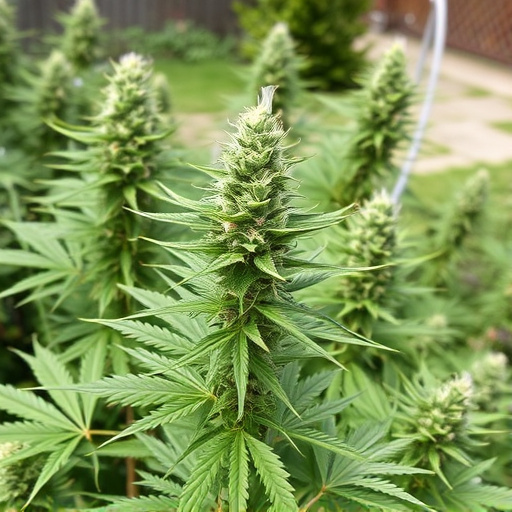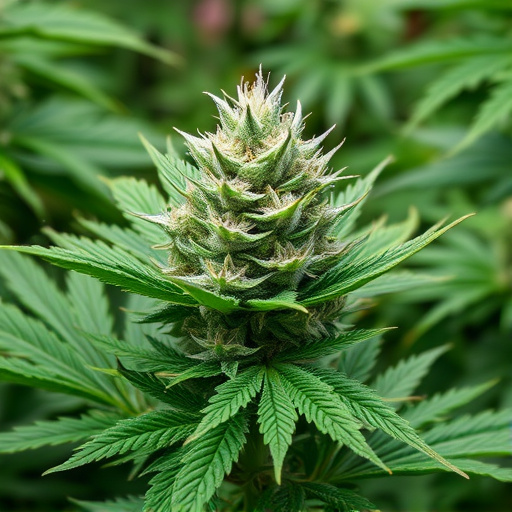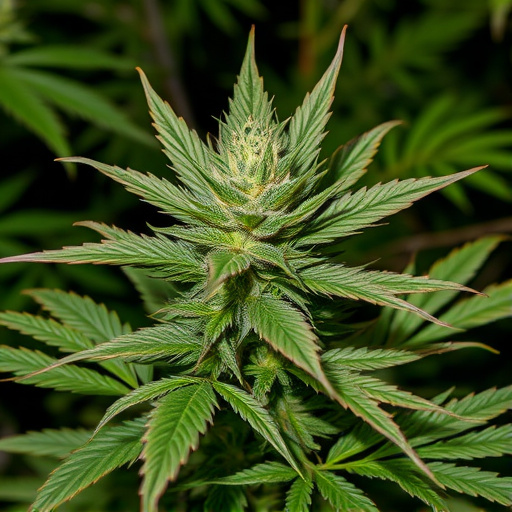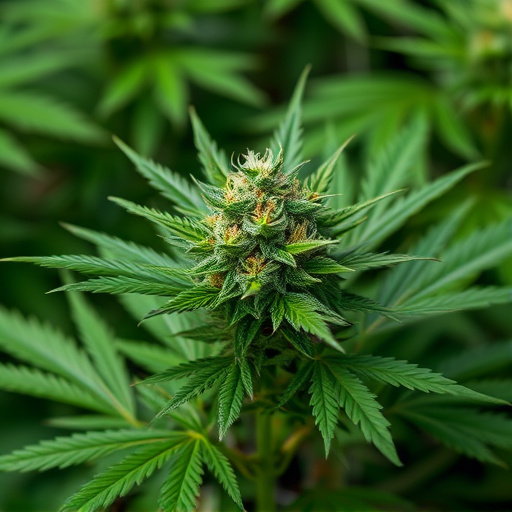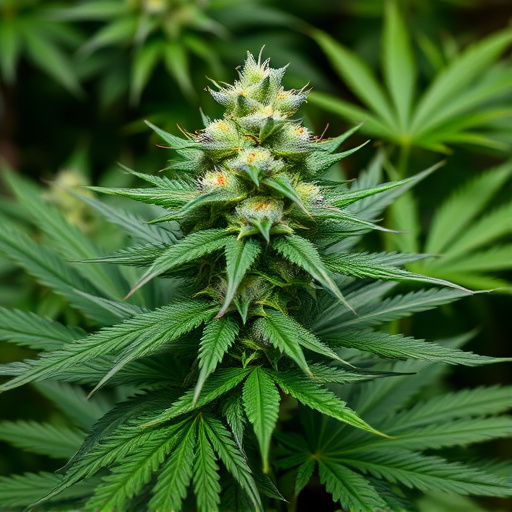Strong cannabis strains rich in THC and cannabinoids have gained attention for their potential in treating mental health disorders like depression, PTSD, and chronic anxiety, with scientific evidence supporting their effectiveness in clinical settings. However, individual responses vary, necessitating caution, education, dosage monitoring, and personalized treatment plans for cannabis therapy. These strains interact with the endocannabinoid system, offering therapeutic effects including relaxation, mood stimulation, and memory support. Indica-dominant strains promote sleep, while Sativa varieties enhance creativity. High THC strains like Blue Dream, Girl Scout Cookies, and OG Kush provide intense euphoria and relaxation for managing mental health challenges.
“Unraveling the mental health benefits of cannabis flower has gained significant interest in recent years. This natural compound offers a promising alternative for those seeking relief from various conditions. In this article, we explore the impact of cannabis on mental well-being, delving into its neurological effects and the science behind it. From understanding the active ingredients to discovering strong cannabis strains tailored for specific needs, readers will gain insights into how this ancient herb can promote tranquility and enhance quality of life.”
- Understanding the Impact of Cannabis on Mental Health
- The Science Behind Cannabis and Its Neurological Effects
- Exploring Powerful Strains for Specific Mental Health Conditions
Understanding the Impact of Cannabis on Mental Health
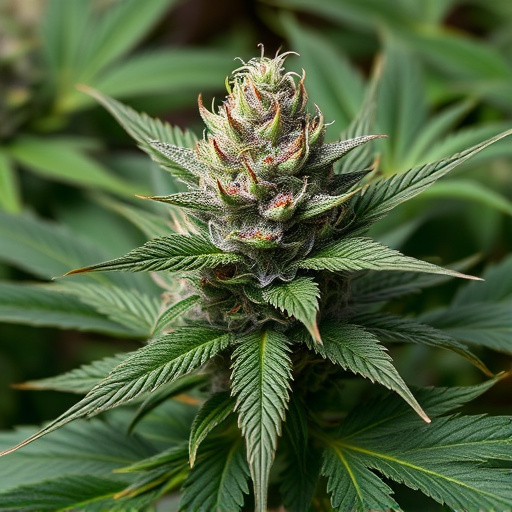
Cannabis flower, with its diverse range of chemical compounds and terpenes, has long been a subject of interest in the realm of mental health. While the stigma surrounding cannabis persists, mounting scientific evidence suggests that specific strains and their unique profiles can offer significant benefits for various psychological conditions. The impact of cannabis on mental health is complex and multifaceted; it interacts with our endocannabinoid system (ECS), which plays a crucial role in regulating mood, memory, anxiety, and pain perception.
Strong cannabis strains, known for their high concentrations of tetrahydrocannabinol (THC) and other cannabinoids, have shown promise in alleviating symptoms associated with disorders like depression, post-traumatic stress disorder (PTSD), and chronic anxiety. The introduction of specific strains into clinical settings has opened new avenues for treatment, offering patients alternative approaches to manage their conditions effectively. However, it’s essential to approach cannabis therapy with caution and guidance, as individual responses can vary greatly; proper education, dosage monitoring, and personalized treatment plans are vital to ensuring positive outcomes while mitigating potential risks.
The Science Behind Cannabis and Its Neurological Effects

Cannabis flower has long been a subject of interest due to its potential mental health benefits, and recent scientific studies have begun to unravel the complex neurological effects it produces. Research suggests that the compounds found in strong cannabis strains interact with our endocannabinoid system (ECS), which plays a critical role in regulating mood, memory, pain perception, and appetite.
When consumed, the primary psychoactive compound, tetrahydrocannabinol (THC), binds to receptors in the brain, leading to a range of effects that vary from person to person. While THC is often associated with euphoria and relaxation, it also stimulates areas involved in memory formation, potentially offering therapeutic value for conditions like PTSD and anxiety. Beyond THC, other compounds like cannabidiol (CBD) contribute to the plant’s complex profile, adding layers of neurological interaction that continue to captivate researchers as they explore the full potential of strong cannabis strains.
Exploring Powerful Strains for Specific Mental Health Conditions
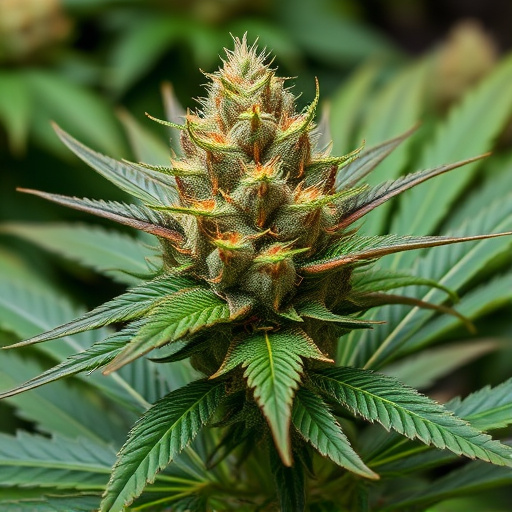
When it comes to mental health, exploring powerful cannabis strains can offer targeted relief for specific conditions. Certain strains have been found to have significant effects on mood, anxiety, and even sleep disorders. For instance, Indica-dominant strains are often recommended for their calming properties, helping to ease stress and promote restful sleep. On the other hand, Sativa varieties may stimulate creativity and uplift mood, making them beneficial for individuals dealing with depression or fatigue.
Some of the most sought-after strong cannabis strains include those with high THC levels, known for their potent psychological effects. Strains like Blue Dream, Girl Scout Cookies, and OG Kush have gained popularity for their ability to induce intense feelings of euphoria and relaxation. These powerful strains can provide a sense of relief and escape from distressing thoughts, making them valuable tools in managing various mental health challenges.
Cannabis flower, with its diverse compounds and strains, offers a promising avenue for exploring mental health support. Understanding its impact on the brain and leveraging specific strong cannabis strains can potentially alleviate various conditions. However, further research is essential to ensure safe and effective use, as individual responses vary. Exploring this natural alternative, guided by scientific insights, may provide relief for those seeking innovative mental wellness solutions.





